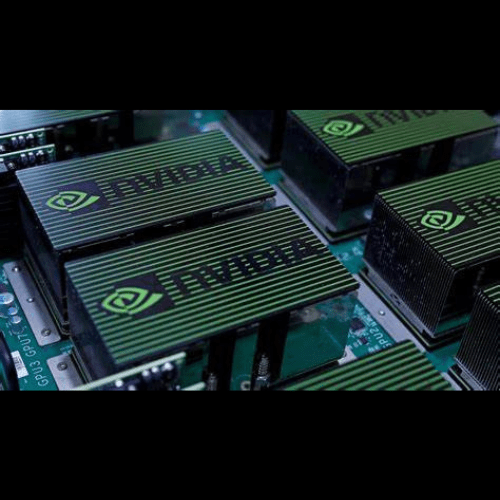As OpenAI moves forward with its mission to revolutionize AI, the company is now exploring the development of in-house chips, potentially transforming its reliance on Nvidia’s powerful GPUs. This shift, paired with Nvidia’s growing antitrust scrutiny, has broad implications not only for the AI hardware landscape but also for Nvidia’s stock performance.
OpenAI’s Move Toward In-House Chips
With the rapid rise in demand for AI applications like ChatGPT, OpenAI has faced the immense cost of powering these systems. Currently, each query made to ChatGPT costs OpenAI several cents, leading to significant expenses when scaled to millions of users. This has made Nvidia’s GPUs, specifically its H100 and A100 chips, crucial to OpenAI’s operations, but also a substantial cost burden.
In response, OpenAI is considering producing its own AI chips to better control its costs and performance needs. By designing proprietary chips optimized for its large-scale language models, OpenAI could save billions in GPU purchases and potentially accelerate its development cycle. However, building these chips will take years and require significant expertise, so the reliance on Nvidia will likely continue in the short term.
The potential upside for OpenAI lies in the ability to own its entire hardware-software stack, enabling more seamless integration and performance gains. For Nvidia, this represents a risk of losing a major client down the line, especially if other tech giants like Microsoft and Amazon follow suit in developing in-house solutions.
Nvidia’s Antitrust Challenges
Nvidia’s dominance in the AI chip market has led to increasing scrutiny from regulators. With most of the world’s AI systems running on Nvidia’s chips, concerns are being raised about whether the company’s market position stifles competition. Nvidia has a near-monopoly on advanced AI chips, making it an indispensable partner for companies like OpenAI, Microsoft, and others. However, this control has caught the attention of antitrust regulators, who are investigating the company’s market power.
If regulatory actions are taken, Nvidia could face increased restrictions, possibly requiring it to loosen its grip on the AI chip market or divest parts of its business. This could open the door for more competition, benefiting companies developing their own chips, like OpenAI, but it could also hurt Nvidia’s stock performance. The market tends to react negatively to uncertainty, and any aggressive regulatory action could send Nvidia’s stock price downward.
Implications for Nvidia’s Stock Price
In the short term, Nvidia is still well-positioned. Its GPUs remain the backbone of the AI revolution, and it is continuously innovating, keeping its products at the forefront of AI hardware. However, the long-term risks are more concerning. If OpenAI, Microsoft, and others succeed in producing their own chips, Nvidia could lose major clients, affecting its revenue. Additionally, any substantial antitrust action could create uncertainty around Nvidia’s future dominance in the market.
Investors should closely monitor developments in both OpenAI’s chip ambitions and the ongoing antitrust investigations. While Nvidia’s stock has performed exceptionally well due to the AI boom, these risks could introduce volatility. If more companies pivot toward in-house chip development or if regulators impose restrictions, Nvidia’s growth could be curtailed, leading to a potential decline in its stock value.
In conclusion, Nvidia is at a critical juncture. The company’s dominance in the AI chip market has driven its success, but challenges from regulatory bodies and potential competition from companies like OpenAI pose significant risks. Investors will need to weigh Nvidia’s continued innovation against these emerging threats to gauge the future trajectory of its stock.
by Steve Macalbry
Senior Editor,
BestGrowthStocks.Com
Disclaimer: The author of this article is not a licensed financial advisor. This article is intended for informational purposes only. It should not be considered financial or investment advice. We have not been compensated for the creation or distribution of this article and we do not hold any form of equity in the securities mentioned in this article. Always consult with a certified financial professional before making any financial decisions. Growth stocks carry a high degree of risk, and you could lose your entire investment.






